Tooth extraction can be a stressful experience, but how you manage the first night post-surgery is crucial for a smooth recovery. Whether you’ve had a wisdom tooth removed or any other tooth extracted, proper care during the initial 24 hours can significantly affect healing. In this guide, we’ll provide practical, expert-backed advice on how to manage pain, prevent complications, and ensure a peaceful night’s sleep after your tooth extraction.
We’ll cover everything from pain management to dealing with swelling, foods to eat, and when to reach out to your dentist. Here are 10 essential tips for your first night after tooth extraction.
What to Expect the First Night After Tooth Extraction
The first night after a tooth extraction can be challenging, but it’s essential to understand what’s normal and what’s not. Here’s what you can typically expect:
- Swelling: It’s common to experience swelling around the extraction site. This can last for several days.
- Pain: You may feel some discomfort, but your dentist will likely prescribe pain medication or recommend over-the-counter pain relievers.
- Bleeding: Mild bleeding or oozing is common during the first few hours after surgery, but it should taper off by the end of the day.
During this critical period, following your dentist’s instructions is vital. By doing so, you can minimize discomfort and avoid complications like infection or dry socket.
How to Manage Pain the First Night After Tooth Extraction
One of the biggest concerns for most people after a tooth extraction is managing pain, especially during the first night. Here are some practical tips:
- Take Prescribed Pain Medication: Follow your dentist’s instructions regarding pain relief. If you’ve been prescribed medication, take it as directed. Don’t wait until the pain becomes unbearable; it’s better to stay ahead of it.
- Use Over-the-Counter Pain Relievers: If no prescription is given, you can take over-the-counter options like ibuprofen or acetaminophen to manage discomfort. Ibuprofen is particularly helpful because it also reduces inflammation.
- Ice Packs: Applying an ice pack to the affected area can help reduce swelling and numb the pain. Use ice in 15-minute intervals, applying it on and off during the first few hours after surgery.
- Elevate Your Head While Sleeping: Sleep with your head elevated using pillows. This position helps reduce blood flow to the area, minimizing swelling and throbbing pain.
Managing pain effectively is crucial for a comfortable first night. Be proactive in following these strategies to minimize discomfort.
Controlling Bleeding on Your First Night After Tooth Extraction
Some bleeding after a tooth extraction is normal, but excessive bleeding can be alarming. Here’s how to manage it:
- Use Gauze Pads: Your dentist will likely give you gauze to bite down on immediately after the extraction. Keep applying fresh gauze to the area for the first few hours, changing it every 30-45 minutes.
- Apply Gentle Pressure: Bite down firmly but gently on the gauze to help stop the bleeding. Avoid chewing the gauze, as this can irritate the site.
- Avoid Spitting: Spitting can dislodge the blood clot forming in the extraction site, leading to dry socket, a painful condition. Instead, let saliva drip out of your mouth naturally.
- Avoid Using Straws: The suction created by using a straw can also dislodge the clot, so avoid using straws for the first 24 hours.
If you follow these steps, bleeding should subside after a few hours. If bleeding continues heavily, contact your dentist immediately.
Preventing Dry Socket the First Night After Tooth Extraction
One of the most common complications following a tooth extraction is dry socket, which occurs when the blood clot protecting the wound is dislodged or dissolves prematurely. Here’s how to prevent it:
- Avoid Strenuous Activity: Physical exertion can dislodge the clot, so take it easy during the first 24 hours after surgery.
- Don’t Smoke or Use Tobacco Products: Smoking can delay healing and significantly increases the risk of developing dry socket.
- Skip the Rinse: While you may feel the urge to clean your mouth, avoid rinsing for the first 24 hours to prevent disrupting the clot.
- Soft Diet: Stick to soft foods like applesauce, mashed potatoes, and yogurt to avoid disturbing the extraction site.
By following these steps, you can reduce your chances of developing this painful complication and ensure a smoother recovery.
Swelling Control on the First Night After Tooth Extraction
Swelling is a natural response to any oral surgery, including tooth extraction. Here’s how to manage it:
- Apply Cold Compresses: As mentioned earlier, ice packs are your best friend for the first 24 hours. Apply them for 15-minute intervals to reduce swelling.
- Avoid Heat: During the first night, it’s best to avoid applying heat to the area as this can increase swelling.
- Elevate Your Head: Sleeping with your head propped up can also help keep swelling to a minimum. Use 2-3 pillows to maintain an elevated position.
Swelling can persist for a few days, but by using these methods, you can keep it under control during the critical first night.
What to Eat (and Avoid) on Your First Night After Tooth Extraction
Your choice of food is crucial for your recovery. Eating the wrong things can irritate the extraction site or dislodge the blood clot. Here are some safe food options and what to avoid:
Safe Foods:
- Applesauce
- Mashed potatoes
- Yogurt
- Smoothies (without a straw)
- Broth-based soups
Foods to Avoid:
- Crunchy or hard foods: Chips, nuts, and popcorn can easily get stuck in the extraction site.
- Hot or spicy foods: These can irritate the extraction area and delay healing.
- Citrus: Foods like oranges or lemonade can sting the wound and cause discomfort.
By sticking to soft, cool foods, you’ll avoid aggravating the extraction site and allow for faster healing.
Sleeping Tips for Your First Night After Tooth Extraction
Getting a good night’s sleep after a tooth extraction may seem challenging, but these tips can help ensure you rest comfortably:
- Sleep With Your Head Elevated: As mentioned earlier, elevating your head helps reduce blood flow to the extraction site, minimizing swelling and throbbing pain.
- Use Pillows for Support: Sleeping on your back with extra pillows under your head will prevent you from rolling onto the side where the tooth was extracted.
- Avoid Sleeping on the Affected Side: This can cause more pressure on the extraction site, leading to increased pain and swelling.
- Stick to Your Medication Schedule: If you’ve been prescribed painkillers, take them as directed before bed to avoid waking up in discomfort.
By following these sleeping tips, you can rest more comfortably during the first night and speed up your recovery process.
Proper Oral Hygiene for the First Night After Tooth Extraction
Maintaining proper oral hygiene after a tooth extraction is essential to avoid infections and other complications. Here’s what you should do on the first night:
- Avoid Brushing the Extraction Area: For the first 24 hours, skip brushing the extraction site to prevent disturbing the blood clot.
- Brush and Floss Other Teeth Gently: You can brush and floss your other teeth, but be sure to do so gently and avoid the extraction site.
- No Mouthwash: Avoid using any mouthwash or rinsing your mouth on the first night. If your dentist has recommended a saline rinse, wait until the next day.
Proper hygiene can help prevent infection and promote faster healing.
Signs of Complications on the First Night After Tooth Extraction
While most people recover from tooth extractions without any major issues, it’s important to recognize signs of complications, especially during the first night. Here’s what to watch for:
- Excessive Bleeding: If bleeding continues beyond a few hours or becomes excessive, contact your dentist.
- Severe Pain: Some discomfort is expected, but severe, throbbing pain could indicate dry socket or another issue.
- Fever or Chills: If you develop a fever, it could be a sign of infection. Seek medical attention immediately.
- Persistent Swelling: Some swelling is normal, but if it worsens after the first 24 hours, it could indicate an infection.
By knowing these signs, you can take action quickly and prevent further complications.
FAQs About the First Night After Tooth Extraction
1. How long will the pain last after a tooth extraction?
Most people experience pain for the first 24 to 48 hours, but it should gradually subside. If the pain persists or worsens after a few days, consult your dentist.
2. Can I sleep on the side where my tooth was extracted?
It’s best to avoid sleeping on the side of the extraction for the first few nights to prevent pressure on the wound.
3. When can I start eating solid foods again?
You should stick to soft foods for the first 24 to 48 hours. Gradually reintroduce solid foods as you feel comfortable.
4. Is it normal to have a bad taste in my mouth after tooth extraction?
Yes, some patients report a bad taste in their mouth due to blood or medication. If it persists, rinse gently with salt water after the first 24 hours (following your dentist’s instructions).
5. When can I brush my teeth after tooth extraction?
You can gently brush your teeth the next day but avoid the extraction site for several days.
6. How can I avoid dry socket after tooth extraction?
Follow your dentist’s post-op care instructions, avoid smoking, and steer clear of using straws or spitting during the first 24 hours.
7. Should I take antibiotics after tooth extraction?
Antibiotics are generally not necessary unless prescribed by your dentist to prevent or treat infection.
8. What should I do if my face swells after tooth extraction?
Swelling is normal, especially on the first night. Use ice packs and elevate your head while sleeping to manage it.
9. How long will bleeding last after tooth extraction?
Light bleeding or oozing is typical during the first few hours. It should taper off by the end of the first day.
10. What if I have a dry socket after tooth extraction?
If you suspect dry socket, contact your dentist immediately for treatment to relieve the pain and promote healing.
In conclusion, the first night after tooth extraction is a critical time for your recovery. By following these essential tips—managing pain, controlling bleeding, avoiding dry socket, and practicing proper oral hygiene—you can ensure a smooth and comfortable recovery. Always follow your dentist’s post-operative instructions and consult them if you experience any complications.
Taking the proper steps during the first 24 hours can lead to faster healing and fewer complications down the road.
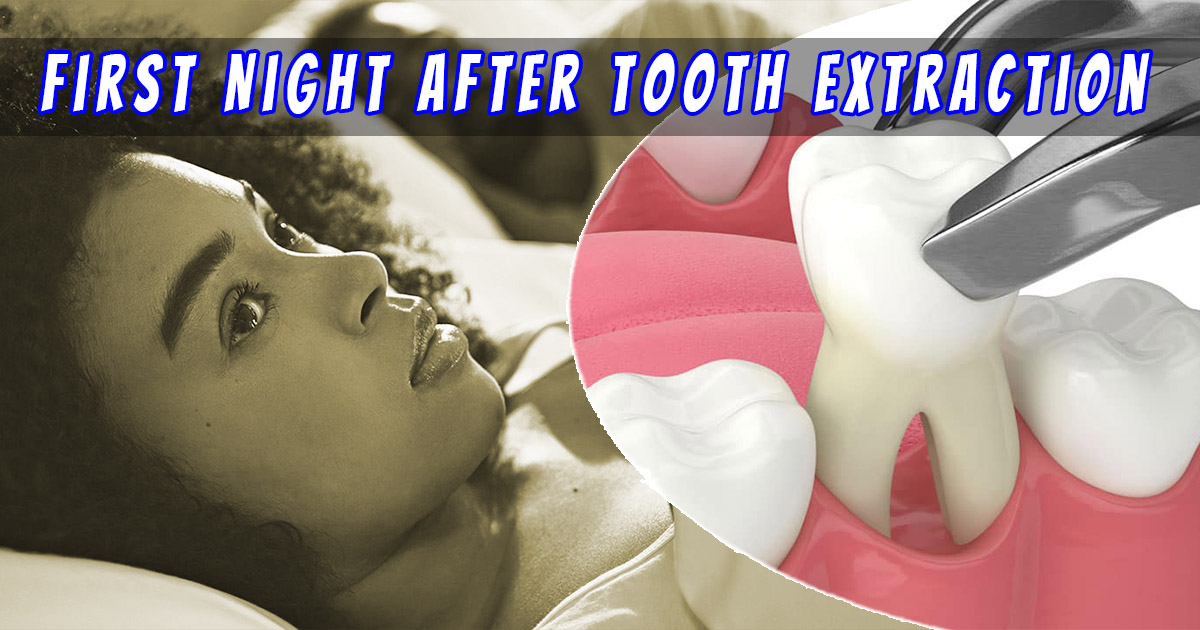
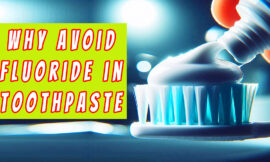
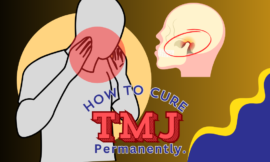
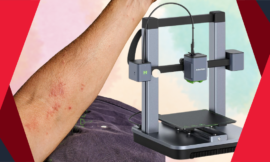
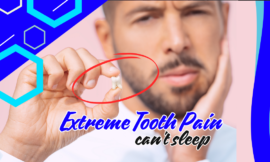
Pingback: Why Avoid Fluoride in Toothpaste? 10 Reasons You Should Be Concerned - Magzineco